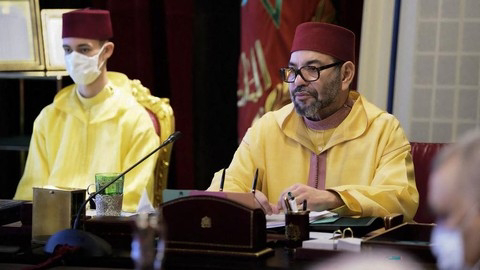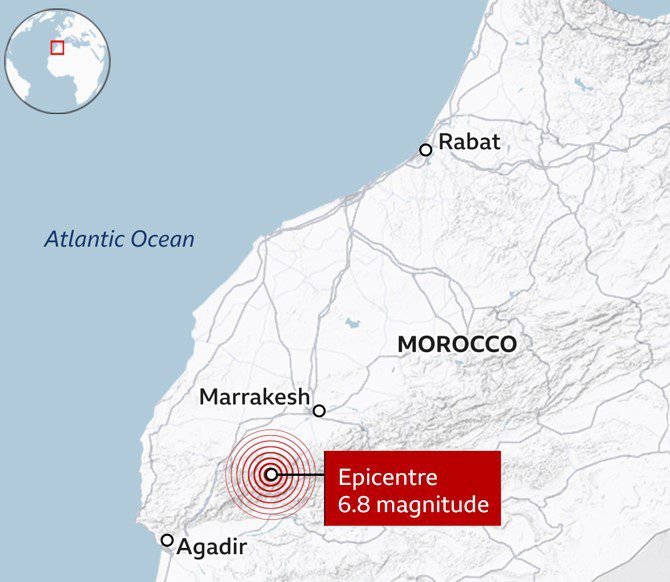The Earthquake that Shook Morocco
 |
| Moroccan citizens screamed when an earthquake struck |
Morocco, a land of breathtaking landscapes and vibrant culture, experienced a seismic event that left an indelible mark on its history. In recent years, the North African nation faced a significant earthquake that tested the resilience of its people and infrastructure. This article delves into the earthquake in Morocco, its impact, the response, and the lessons learned.
The Earthquake Strikes
On the fateful day of Friday 8/9/2023, Morocco experienced a powerful earthquake with its epicenter located in Marrakesh. The magnitude of the earthquake measured 6,8 on the Richter scale, making it one of the most significant seismic events in the region's recent history. The tremors were felt across several cities and regions, causing panic and devastation.
Impact on Lives and Infrastructure
 |
| remaining building debris |
The earthquake's immediate impact was felt in the form of collapsed buildings, damaged roads, and disrupted utilities. Lives were tragically lost, and many others were injured. The affected areas saw the destruction of homes, businesses, and historical landmarks, further deepening the emotional scars left by the disaster.
Government Response
 |
| Morocco's government responded quickly to the earthquake |
In the wake of the earthquake, the Moroccan government swiftly mobilized resources and launched a comprehensive response plan. This included deploying search and rescue teams to affected areas, setting up emergency shelters, and providing medical aid to the injured. International aid organizations also joined efforts to provide much-needed assistance.
Rebuilding and Recovery
 |
| many historical buildings were badly damaged after the earthquake |
Rebuilding a nation after such a disaster is a monumental task. Morocco embarked on a long and arduous journey to reconstruct damaged infrastructure and help affected communities get back on their feet. Government initiatives, alongside international aid and support, played a crucial role in this recovery process. It was a testament to the resilience and determination of the Moroccan people.
Lessons Learned
The earthquake in Morocco highlighted the need for robust disaster preparedness and mitigation strategies. It emphasized the importance of earthquake-resistant construction methods and early warning systems to minimize casualties and property damage in future seismic events. Morocco has since invested in improving its disaster response and resilience measures.
Community Resilience
 |
| Post-earthquake community resilience |
Throughout the ordeal, the people of Morocco displayed remarkable resilience and solidarity. Communities came together to support each other, demonstrating the strength of human spirit in the face of adversity. This sense of unity and determination will undoubtedly shape Morocco's future disaster preparedness efforts.
The earthquake in Morocco was a tragic event that tested the nation's strength and resilience. While it brought destruction and loss, it also showcased the spirit of solidarity and determination within the Moroccan people. As the country continues to recover and rebuild, it is clear that valuable lessons have been learned. Morocco stands as a symbol of resilience in the face of nature's fury, ready to face the future with greater preparedness and strength.

Comments
Post a Comment
More Articles